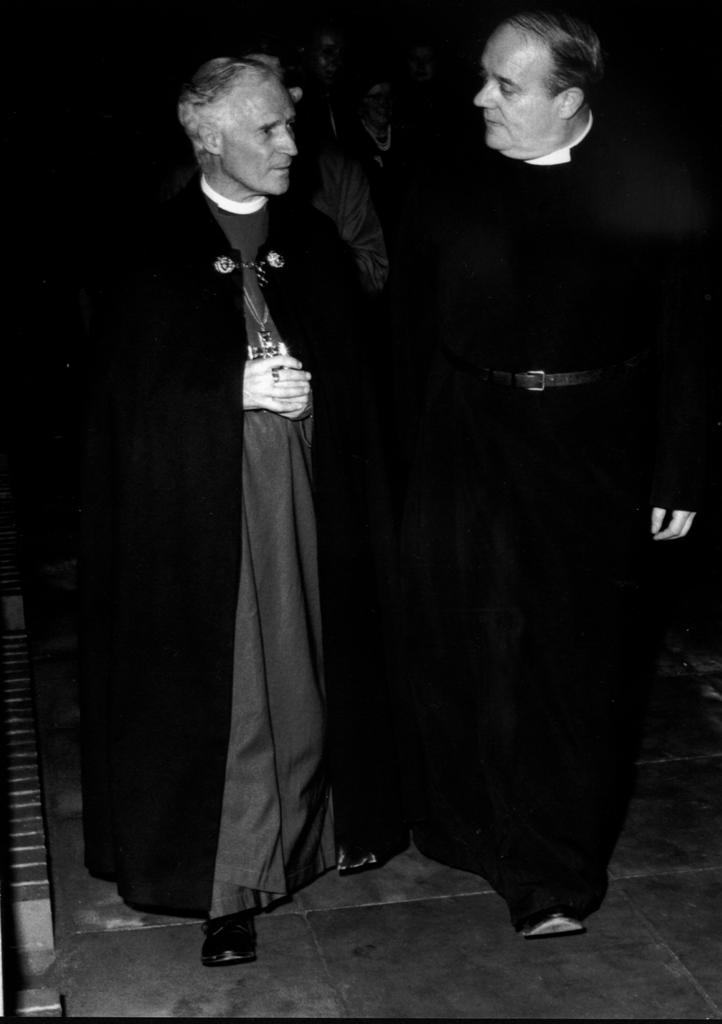
Norman Butcher's new church at Scholes opened by the Bishop of Ripon, Rt. Revd .John Moorman
| 'A central churchman and maintain the traditions at present in operation… a man of good physique and in first class health ...and experienced though not too advanced in years.' |
| 'We have had a very happy ministry of nine years at Kirby Ravensworth and we have made many friends, but we count it a great blessing that we have been invited to come and be of service to you. ..It is amazing what can be accumulated in nine years! I only hope that when you have had me as a Rector for nine years you will still wish to retain me.' (Parish Magazine March 1959). |
| 'One of the steel cables of the striking mechanism of the clock has broken and the weight which it supported fell some twelve feet on to the floor of the clock room. Two stone corbels supporting one of the floor beams were broken and the floor was damaged.' (Barwick Church Council meeting. 8th December 1959) |
| 32 People | Gave 1 shilling or under | 5 people | Gave 7/6d |
| 28 | 2 shillings | 11 | 10 shillings |
| 17 | 3 shillings | 11 | 15 shillings |
| 6 | 4 shillings | 1 | £1 |
| 6 | 5 shillings | 1 | Over £1 |

MARTIN TARPEY |